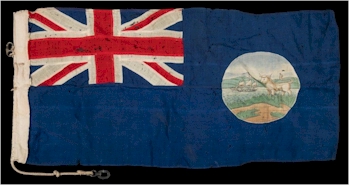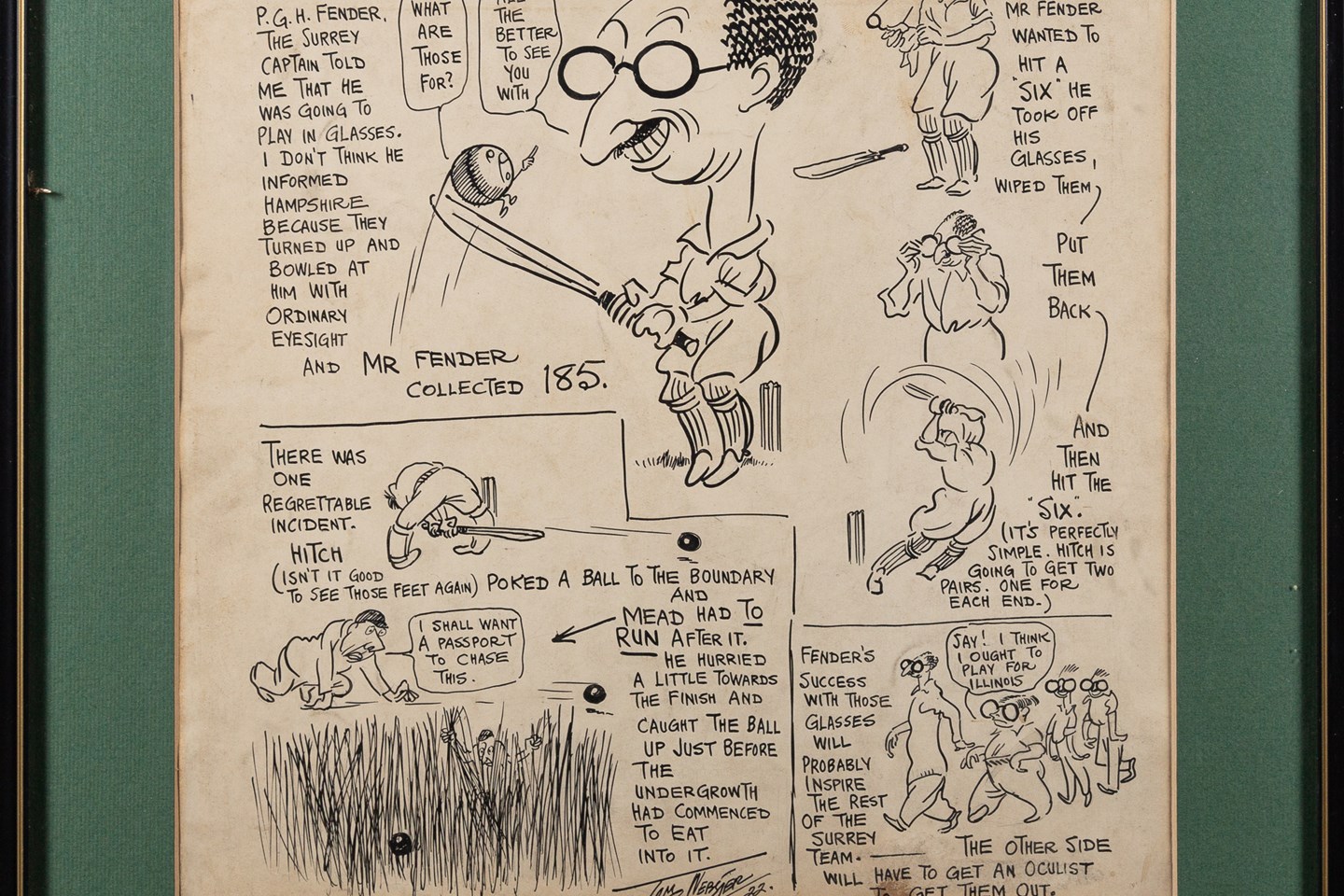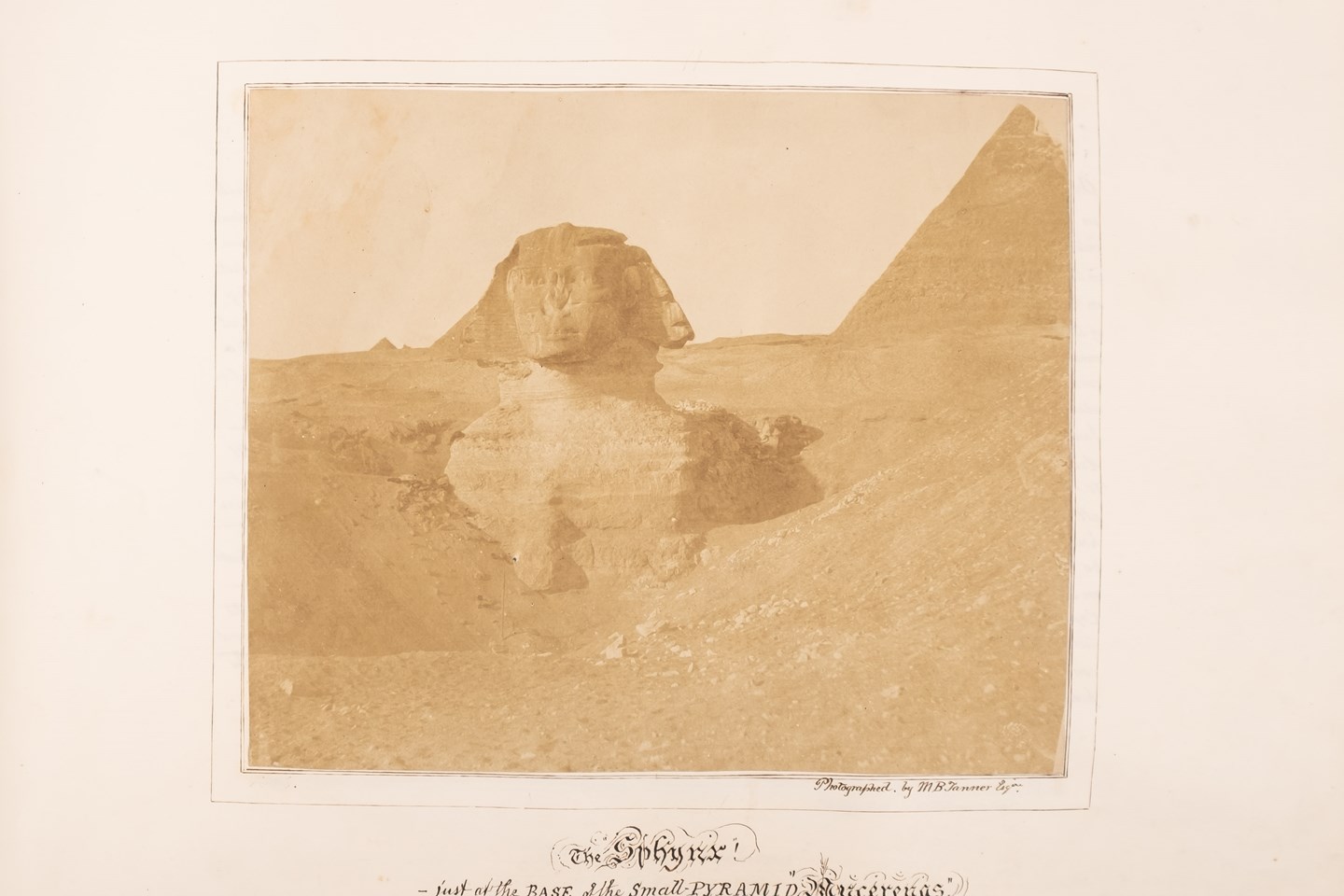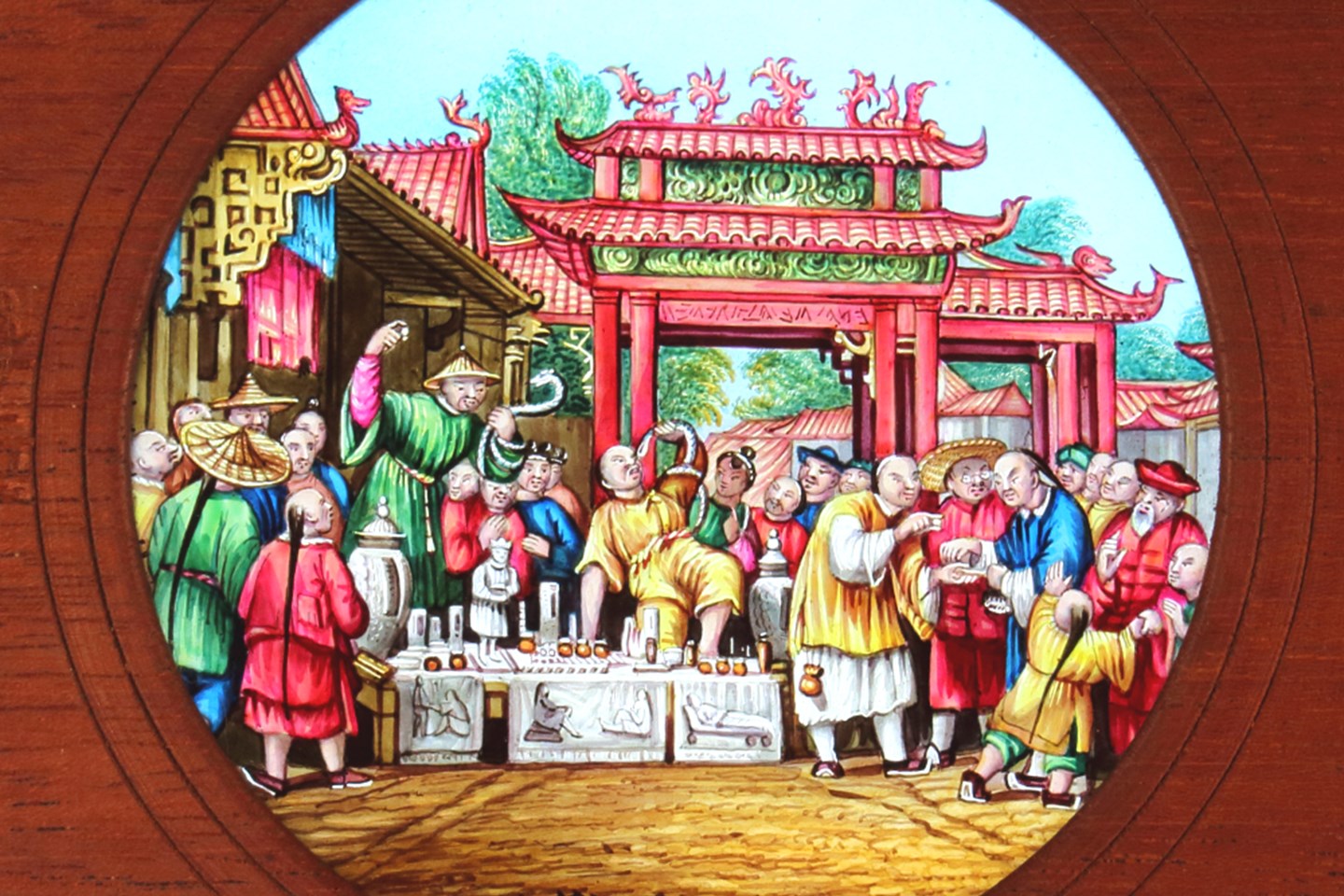
An early 20th Century Falklands Island flag from the RRS Discovery II Expedition of 1930s, which sold for £450 (MA19/10).
The fascination with Polar exploration has been a century's long tale of the toughness and resilience of the men who undertook feats of huge bravery. When artefacts from these expeditions turn up at auction, there is always a great deal of interest and the stories behind them are equally as fascinating. For example, after the loss of Sir William Franklin's Expedition to find the Northwest Passage in 1845 aboard HMS Terror and HMS Erebus, several expeditions were sent to discover their fate.
One such expedition was that of Sir Edward Belcher's of 1852/3/4 on which Admiral George Richards KCB, Commander of HMS Assistance was a member. His personal sledge flag was used on this and subsequent expeditions in 1875 and when offered at auction at Bearnes Hampton & Littlewood achieved £7,000 (MA17/113).
Even something as mundane as a dinner plate or a tea cup and saucer can become significant when its history and provenance is revealed. Polar expeditions often took specially made dinner and tea services like the 1875 expedition plate shown here (MA17/111).
The Admiralty led expedition, which also included the Discovery, was an attempt to reach the Pole by way of Smith's Sound. In spite of a near disaster owing to inappropriate clothing, equipment and both crews suffering scurvy, the expedition did achieve the most northerly recorded latitude on on 12th May 1876.
This provenance helped this plate to achieve £750 at auction.
Likewise, the Doulton Burslem porcelain cup and saucer for the British Antarctic Expedition 1901-1904 (MA17/110) organised by the Royal Society and the Royal Geographic Society was famous for including both Scott and Shackleton.
A diary entry for 8th September 1901 rues the fact that the wardroom china was being used in base camp and "The breakage's continue in vast quantities in our pantry and only eight teacups are left".
Great provenance again, which helped this cup and saucer achieve £4,000 at auction.
As the world grows smaller thanks to digital technology and GPS, it seems that there is less opportunity to venture into the unknown. However, looking at the crew aboard RYS Terra-Nova in this photograph by expedition photographer Herbert Ponting (1870-1935) (FS29/456) struggling in a gale to sail to the Antarctic even before setting out to trek to the South Pole (sold for £5,100), it perhaps gives one a sense of adventure and wonder of the expedition itself.
Certainly, one man who experienced the voyage aboard the RYS Terra Nova in 1910 was the ship's carpenter Francis Edward Davies (1885-1952). His experiences aboard the TRYS Terra Nova and the loss of his good friend Captain Oates did not deter him from subsequent expeditions aboard RRS Discovery II and RRS William Scoresby in the 1930s.
On these voyages, he photographed many of the places and crew of the Second Wilkins Hearst Expedition (MA19/13). The album proved popular, selling for £2,100 at auction. From Francis Davies extensive Polar archive, a Falklands Island flag (MA19/10) sold for £450 while a simple Antarctic Club reunion dinner invitation (MA19/3) sold for £110.
There will never be another 'Golden Age of Polar Exploration' so the men who survived such extreme physical and mental conditions will always be held in high regard by collectors. As we move onto the third era of the 21st century these artefacts will only increase in value and, therefore, are certainly piece to look out for at auction.
- Bearnes Hampton & Littlewood
- Polar Exploration
Polar Exploration was written on Friday, 6th September 2019.





